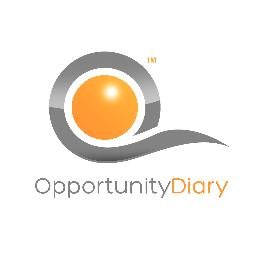Application Deadline: Feb 7, 2022 @ 5:00pm EST
Both the frequency and severity of natural disasters are increasing. This year alone, we have seen significant wildfires across the Western United States and in countries like Greece and Turkey; major floods across Europe; a 7.2 earthquake in Haiti, and Hurricane Ida’s impact to the coast of Louisiana. In response, governments, businesses, nonprofits, and international organizations are placing more emphasis on disaster preparedness and response than ever before. Many of these same entities are accelerating their efforts to make their data publicly available for others to use. Repositories such as the Registry of Open Data on AWS and Humanitarian Data Exchange contain treasure troves of data that is ripe for use by developers, data scientists, and machine learning practitioners.
At AWS, we believe that technology has the power to solve the world’s most pressing issues. As we build and improve new services such as Amazon SageMaker Studio Lab, we take pride in supporting the new and innovative ways our customers are using these technologies to deliver social impact. Through this hackathon, we hope to stimulate ways to apply machine learning to solve pressing challenges in natural disaster preparedness and response.
The scope of this hackathon is broad, but we have provided some parameters to guide participants’ work:
- The solution must solve a challenge that is aligned with at least one of the phases of the disaster life cycle (mitigation, preparedness, response, recovery).
- The solution must focus on a challenge that is present in one or more types of natural disaster (e.g. hurricanes/cyclones; wildfires; floods; earthquakes; drought; etc.).
- The solution must use machine learning to solve the challenge. This includes the submission of a machine learning model that helps people predict, identify, categorize, prioritize etc.
Eligibility
The Hackathon IS open to:
• Individuals who are at least the age of majority where they reside as of the time of entry (“Eligible Individuals”);
• Teams of Eligible Individuals (“Teams”); and
• Organizations (including corporations, not-for-profit corporations and other nonprofit organizations, limited liability companies, partnerships, and other legal entities) that exist and have been organized or incorporated at the time of entry.
• An Eligible Individual may join more than one Team or Organization and an Eligible Individual who is part of a Team or Organization may also enter the Hackathon on an individual basis. If a Team or Organization is entering the Hackathon, they must appoint and authorize one individual (the “Representative”) to represent, act, and enter a Submission, on their behalf. By entering a Submission on behalf of a Team or Organization you represent and warrant that you are the Representative authorized to act on behalf of your Team or Organization.
• The Hackathon is only open to the first 27,000 Eligible Individuals that register for an Amazon SageMaker Studio Lab account. Any individual that registers for the Hackathon after the foregoing threshold is met will be deemed ineligible.
Application Procedure
What to submit:
- Must include a machine learning model. Note: You don’t need to build this model from scratch. You are allowed to use existing, pre-trained models, and apply transfer learning or fine-tuning as part of your project. This can be a prototype model to demonstrate your idea.
- Must include a demonstration video of the entry in English with a length of no more than 3 minutes.
- Must identify contributions from each team member.
- Include a link to the Open Source Project code on GitHub or another code repository sharing service. The code repository must be public with an approved OSI Open Source License. Code will be used for Submission review, testing, and Judging.
Judging Criteria
- Potential Value
Includes the extent to which the solution can be widely useful to disaster response organizations, easy to use, accessible, etc. - Quality of the Idea
Includes creativity, originality of the project, such as finding and using unique public datasets, or solving a challenge in a unique way. - Implementation
Includes how well the idea was prototyped by the developers using machine learning and Amazon SageMaker Studio Lab.
Official Website: AWS Disaster Response Hackathon


